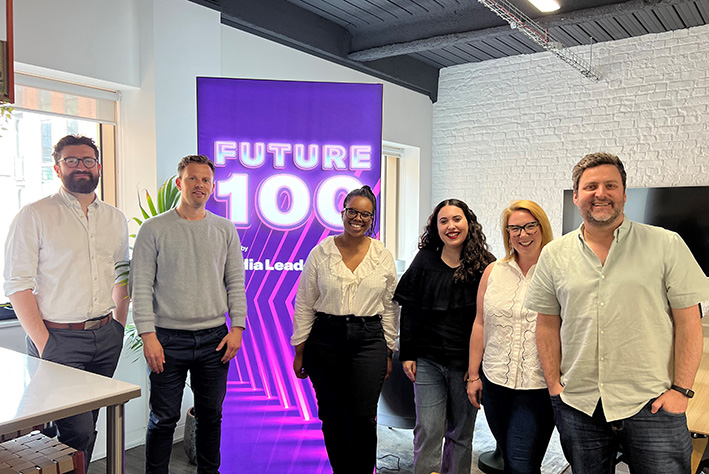|
Maria Iu
Future 100: Industry still too ‘gung ho’ in jumping on trends



The industry is still too quick to jump on trends and needs to get the basics right, according to a recent roundtable featuring Future 100 members.
Even for products and ideas that aren’t new, such as retail media, “a lot of the basics we haven’t quite got right yet”, said Alice Anson, director of digital media at Nectar360.
This extends to terminology, too, as an industry fond of jargon and acronyms. Evie Clifton, paid social business director at Mindshare, pointed out that “it’s difficult to have a standardised version” of any terms.
“Programmatic was called ‘problematic’ for a reason,” Simon Akers, founder and partner at consultancy Archmon, observed. “Sometimes we’re too gung ho in jumping on the new media trend.”
Clifton agreed, noting: “The basics are great, but they’re not sexy!”
The pressure for innovation from clients makes agencies “want to be the first to do” something, added Ally Tyger-Doyle, EMEA head of DEI at MiQ.
Oliver Thomas, marketing lead for the Media Cluster at Ipsos, questioned much of the “innovation” taking place in the industry: “Everyone says they’re innovative. Actually, is it innovative? Is it different?”
He argued: “Innovation isn’t innovation if everyone’s doing it!”
Indeed, we mustn’t forget the need for a good strategy, Akers said. After all, “innovation is in the eye of the beholder”.
A strong strategy should be accompanied by a “dispersed marketing approach”, according to Thomas. “We need to stop looking at singular features,” he emphasised. “We see hundreds of ads — are you really making a purchase off one single channel?”
For Anson, the key to solving the industry’s future challenges lies in attracting the next generation of talent: “How do you get people to understand that it is really interesting, not just ‘we fell into it’?”
The industry has put a lot of barriers in place for people, she pointed out, such as people in house shares and those returning from maternity leave.
Clifton noted that, while there has been some geographical diversification in recent years, media remains London-centric and, for many starting out, moving to the capital on an entry-level salary is just not “viable”.
Tyger-Doyle, meanwhile, added that there’s a wider discussion at play: “Yes, there’s lots about how we attract talent, but that retention piece — that’s really important.”
For example, Dan Ward, deputy UK country manager at Seedtag, highlighted the lack of flexibility facing parents, noting: “We end up losing a lot of talent with 10-plus years of experience to childcare.”
DEI, unsurprisingly, is a key component in this discussion. The focus for Tyger-Doyle is “how can we not be so reactive” when it comes to diversity.
On the one hand, it’s a good thing that the industry has changed and “we’re not looking for the same kind of person any more”, Ward explained.
However, despite making “so many good strides”, the industry is now at a turning point and he is concerned that progress is going backwards.
Frankly, the argument that DEI helps businesses become more profitable hasn’t worked, Tyger-Doyle said, adding: “We need more collective pressure.”
Acknowledging there’s a lot of “performative stuff” from businesses, Akers thinks it’s ultimately a simple debate: “We’re a people industry — if you’re worried about AI taking your jobs, then focus on your people!”
“What is our ultimate goal? It’s about selling products,” Ward concluded. “If we’re not representative of the market we’re selling to, how can we do this effectively?”
